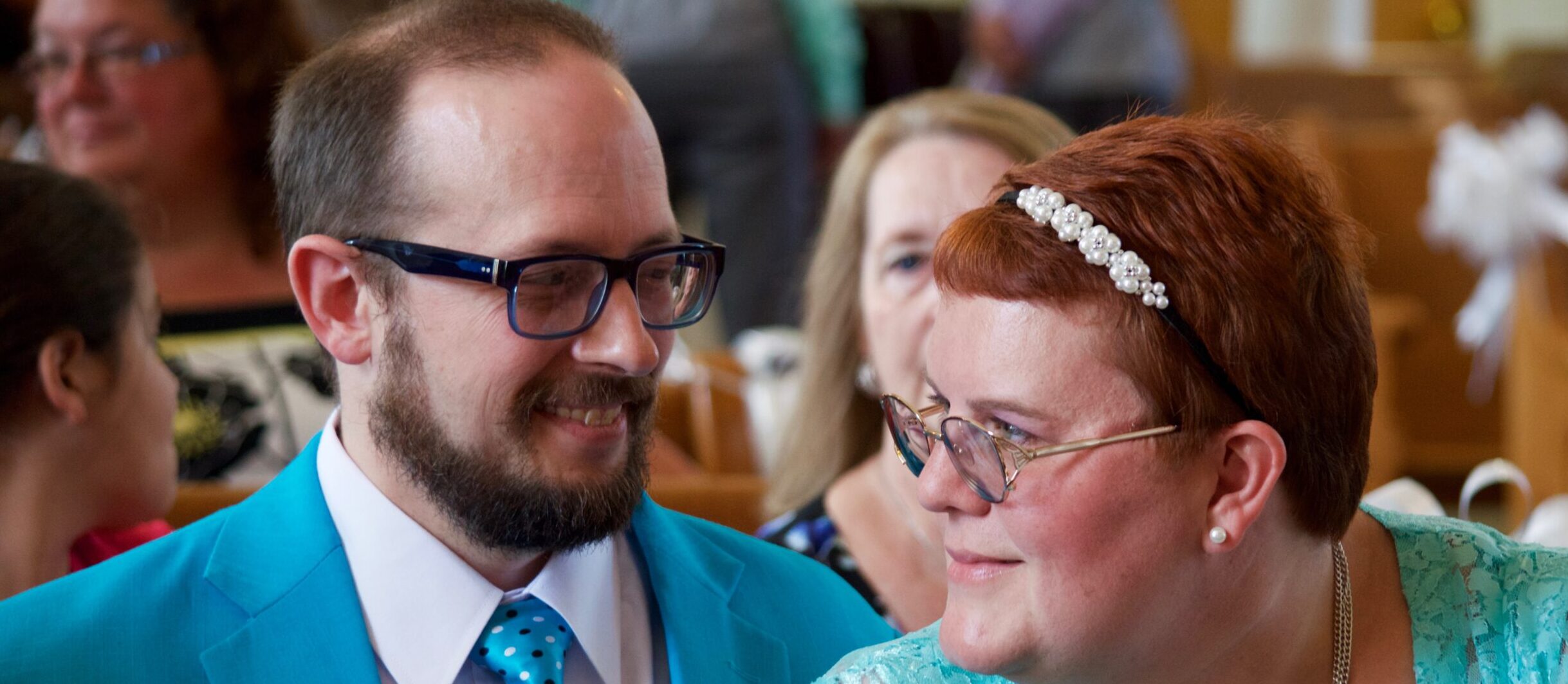Ah, Valentine’s Day – difficult for many people, but a potential landmine for the atypical marriage. A neurodiverse person can do very well in certain situations, but a holiday like this only comes once a year. Since we got married so early, Philip only had seen 18 or 19 Valentine’s Days, and probably was aware of any need to retain information about the holiday for less than that.
Phil –
So, here is what I did. I don’t remember for sure exactly what I did for our first Valentine’s Day together, but I don’t hear stories about that one, so probably okay. We were dating, engaged and working on wedding plans at that time. However, the next year rolls around, and it is different. We married July 1, and then by February, Mandy was more than 6 months pregnant and really beginning to feel it. My brilliant idea – buy her a pregnancy support belt for Valentine’s Day.
Let me walk the neurotypicals through this – I imagine the atypicals have it already – This woman is the most important person in the world to me, and I was very aware of how much this ever growing belly was causing strain on her back. Also, like many young couples, we were a bit tight in the funds department. I knew she needed something to help, and she would probably never buy it for herself. So, to me, a perfect expression of love was to take the money set aside for her present and use it to get her a support belt to help more evenly distribute the strain on her back.
Mandy –
Needless to say I was less than pleased. I was newly 20 years old, heavily pregnant, hormonal and feeling less than glamourous. I took this gift as a commentary on my weight. I was very angry and frustrated at Phil and could not understand why he would choose such a non romantic gift. Looking back now, I understand where his thought process was and I have the tools to handle such an event.
One of the tools I would use now is to thank him for the gift and ask why he chose the gift. In asking the “why” of the choice often the thought process can reveal the intention of the non traditional gift. Had I asked the question “why” or better yet “this was very thoughtful, what made you think of this for me?” I would have better understood that his heart was trying to ensure I was pain free, healthy and cared for during a difficult pregnancy.
The other tool that has assisted the challenge of gift giving especially romantic gift giving is to have a “safe” person in which to bounce ideas off of before making a gift purchase. For Phil, this is my mom or our daughter. Often times if he is unsure of the choice he has made or if he cannot determine an appropriate gift for an occasion he will show the gift to his “safe” people and make a descisions from there.
Gift giving will always be challenging for Phil but I have come to appreciate the thought and uniquenss that are his choices because I know they come from a place of care and love.
Final thoughts
Communication is the key to many marriages and more so if one partner is atypical. The autism can make it difficult to see the other person’s view, and that makes it easy to ruin romance sometimes. Asking questions and being honest about feelings will lay the groundwork for better future Valentine’s Days.
First post – About Us
We have been talking about doing this for a while. We have been married for years, and we have had many ups and downs, like a typical couple. However, we have learned that one of us is atypical – Philip has autism and ADHD. Mandy is an educator with years of experience in helping students with atypical situations. Over the years, we have built a relationship that works, and now we understand how that some of our challenges could have been much more solvable if we had known some strategies that we know now.
The idea of this blog is to tell our story, share our experience and our expertise. Many of our posts will start out with a story from our marriage, follewed by an explanation of what was going on from inside Philip’s atypical mind. Then we will talk about how we dealt with this at that time, and how Mandy’s expertise would apply strategies to the situation if this were one of her students.
What we hope is that this will help other couples as they cope with atypical learning styles and atypical social interactions. As we progress, we will use our combined experience and insight to answer questions that our readers submit.

